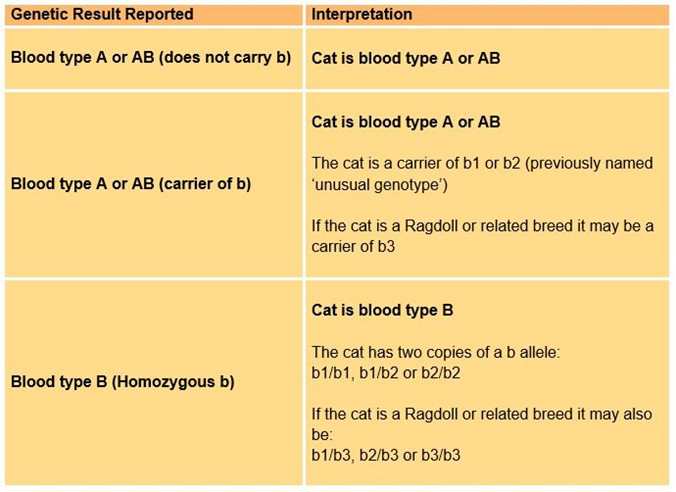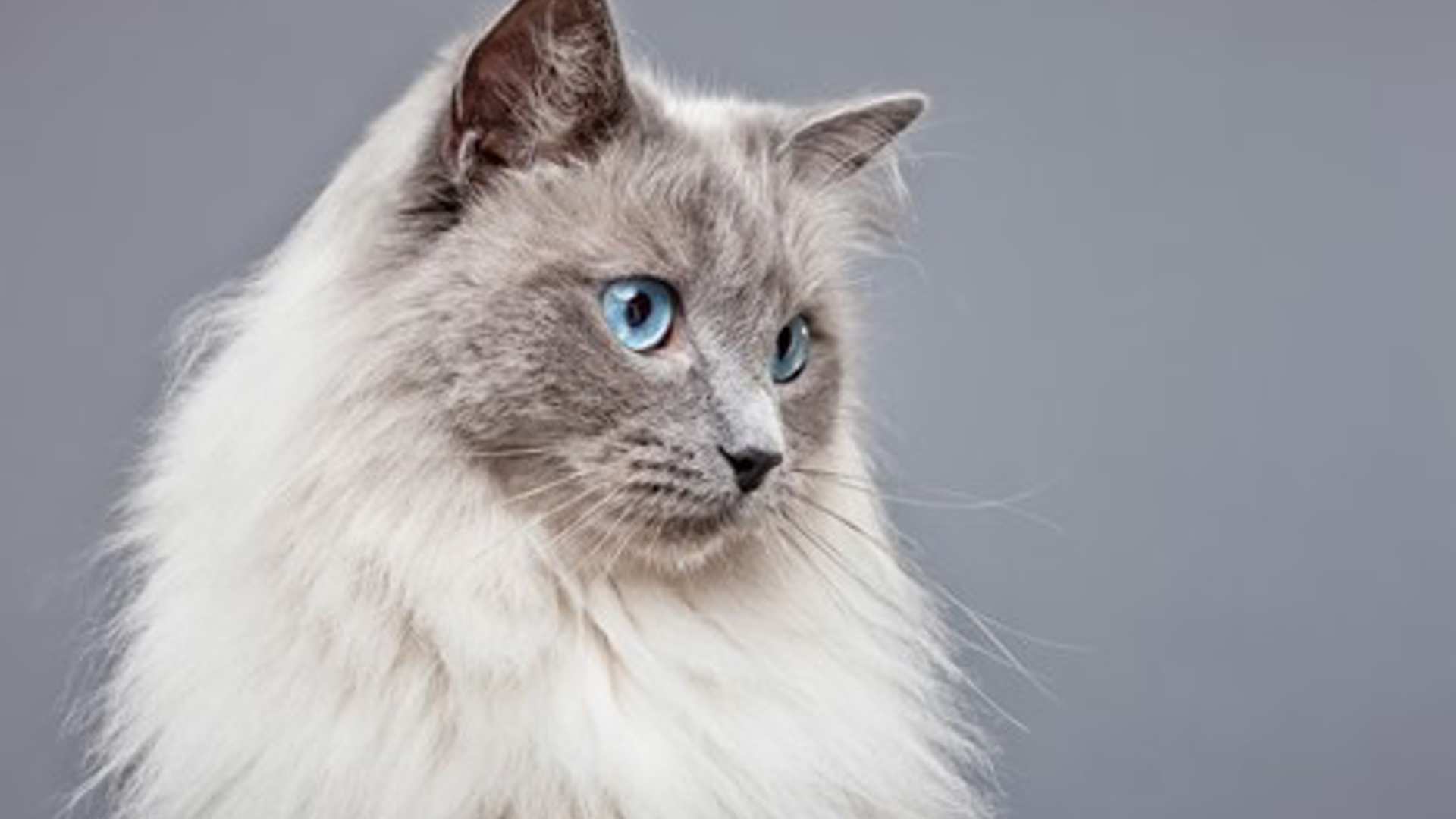This is a new, breed specific genetic blood type test relevant to Ragdolls, related breeds plus Scottish Folds. Any owners/breeders who have previously tested cats of these breeds with us for genetic blood type may want to add this additional test to increase the accuracy of their result. Owners submitting new samples from these breeds for genetic blood typing will automatically be encouraged to add this additional test alongside the Blood type (All breeds) test for the most accurate result.
Our genetic test for Feline Blood Type now renamed Blood type (All breeds) identifies two recessive b alleles that are associated with type B blood in all* breeds of cat.
Prof. Leslie Lyons' laboratory at UC Davis, USA discovered the original mutation in the cytidine monophospho-N-acetylneuraminic acid hydroxylase (CMAH) gene associated with B blood type (termed b1).
*Some breeds do not have the b allele (Siamese, Burmese and Oriental Shorthair)
Our research later identified a further mutation, termed b2 (previously named ‘unusual genotype’), that also appears to be linked to blood type B in cats. The b2 mutation is rare but has been observed in cats from the UK, Mainland Europe and the USA in several breeds including Bengal, BSH, Devon Rex, Egyptian Mau, Ragdoll, Siberian and Turkish Van.
By including these two mutations together in our genetic Blood type (All breeds) test it is 97% accurate at predicting a cat's blood type in pure breed cats. In about 3% of cats the genetic results do not match the conventional blood typing results, indicating that there are additional mutations yet to be identified.
New Test
Recently, one of these additional mutations in the b allele has been discovered that is associated with blood type B in Ragdolls, related breeds and Scottish Folds**.
** This is a new mutation, as more is discovered about this mutation it may be found in breeds other than those listed. We will update our testing advice accordingly.
What is the prevalence of the new blood type b3 allele?
We believe the new b3 allele frequency in the Ragdoll population is approximately 18%.
What does this mean for the genetic blood type result for my Ragdoll?
Due to the reasonably high prevalence of this new b3 allele in Ragdolls, we would expect approximately 27% of Ragdolls previously reported as Blood type A or AB (does not carry b) to be re-classified as Blood type A or AB (carrier of b) and 4% to be re-classified as Blood type B (Homozygous b). Additionally, we would expect approximately 35% of Ragdolls previously reported as Blood type A or AB (carrier of b) to be re-classified as Blood type B (Homozygous b).
I already tested my Ragdoll for Feline Blood Type with you, how do I add the new b3 test?
If you have previously tested a Ragdoll, related breed or Scottish Fold cat for our Feline Blood Type test (now Blood type (All breeds)) and the result was not Blood Type B (Homozygous b), then we recommend adding the new Blood type b3 (Ragdoll and related breeds) test in order to ensure an accurate complete blood type result.
This can be done via our website by completing the online submission form and providing your cat’s unique “G” number when prompted.
How do I interpret the result of my Blood Type genetic test?

For more information on our genetic blood type tests and how to avoid Neonatal Isoerythrolysis (fading kitten syndrome), please see our Blood Type fact sheet.
